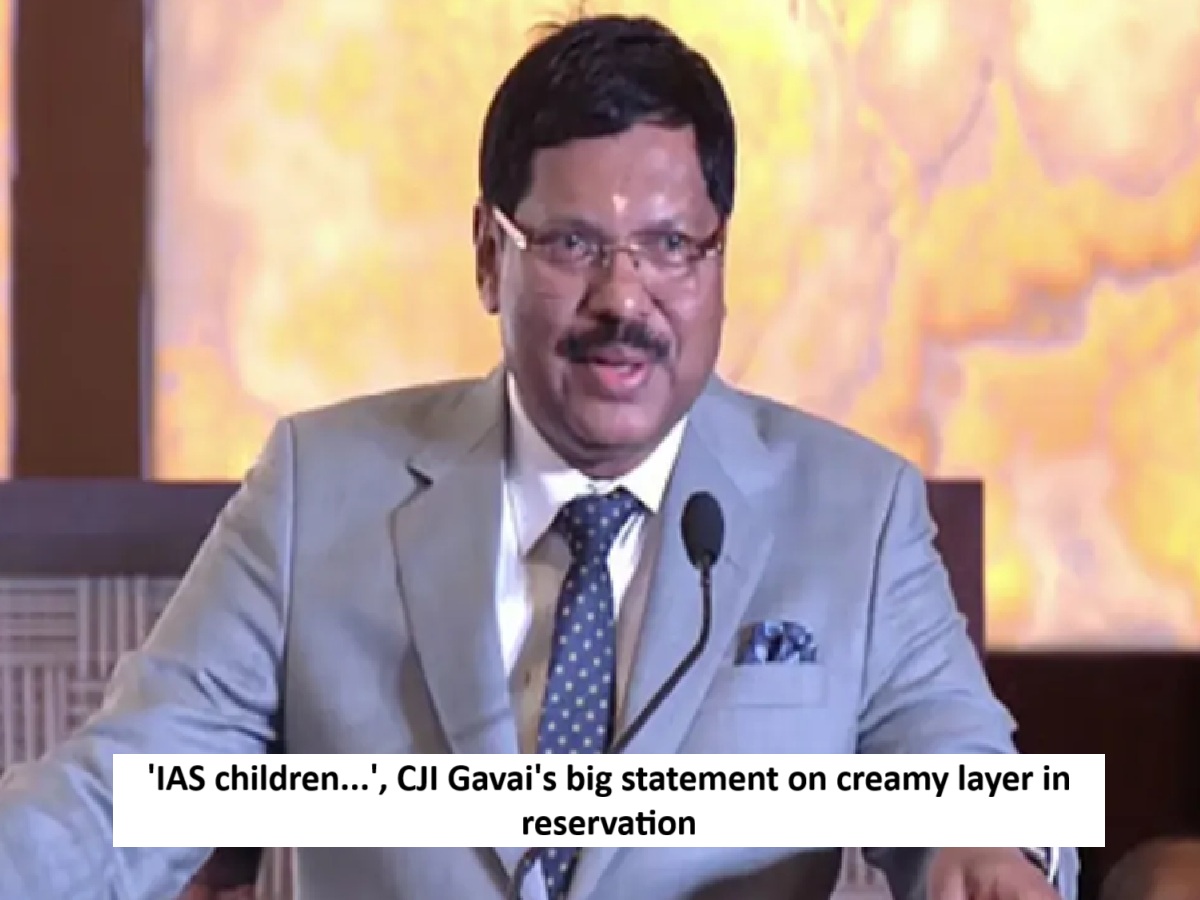
News Topical, Digital Desk : Chief Justice of India ( CJI) B.R. Gavai said on Sunday that he still supports excluding the creamy layer, meaning those who have advanced economically and socially, from reservations for Scheduled Castes ( SCs) . He said that the children of an IAS officer cannot be considered equal to the children of a poor farm laborer.
Speaking at the program "India and the Living Indian Constitution at 75 Years," the CJI said that the same principle of creamy layer applied to OBCs in the Indra Sawhney case should also apply to the SC . He acknowledged that this opinion has been widely criticized, but he believes it is correct.
When will CJI Gavai retire ?
CJI Gavai smiled and said that judges don't usually need to explain their decisions, and that his retirement is only a week away. The CJI added that over the years, there have been positive changes in society regarding women's equality and their rights.
He noted that his first public event after becoming CJI was in Amravati, Maharashtra, and his last was also in Amravati, Andhra Pradesh, an emotional coincidence for him. He recalled that in 2024, he had suggested to states that a creamy layer within SCs and STs should also be identified and denied reservation benefits.
CJI Gavai said that the Constitution is not static. Dr. B.R. Ambedkar wanted the Constitution to change over time, evolve, and respond to the needs of society. He said that some people consider the constitutional amendment powers excessive, while others consider them too onerous; criticisms on both sides have always existed.
CJI cited the words of Dr. Ambedkar
CJI Gavai said that every law student should read Ambedkar's speeches on the Constitution. Citing Ambedkar's words, he said that equality alone does not suffice to achieve progress, and that liberty alone allows the powerful to dominate the weak, and that equality, liberty, and fraternity are essential.
The Chief Justice said that the Constitution is the reason the country has had two SC presidents, and that today's president is from the ST community. He emotionally remarked that his rise from a humble municipal school in Amravati to the highest judicial position in the country was possible only because of the Constitution.
Read More: Fake ISRO scientist exposed: used to sexually exploit women through matrimonial websites; arrested
--Advertisement--

 Share
Share



